Holosy: Voices on Gender in Ukraine
Date: 23 August 2023
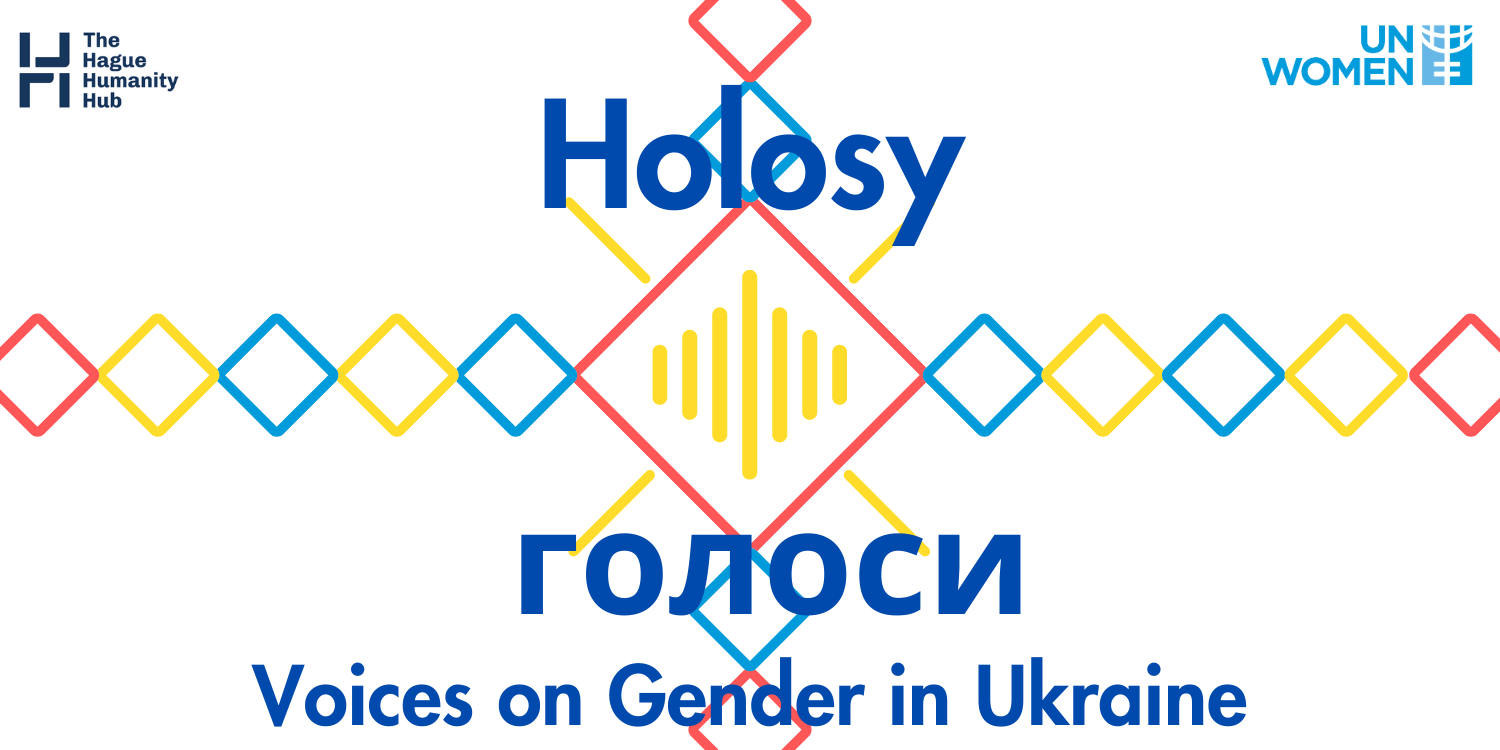
Holosy (‘voices’ in Ukrainian) is a new podcast series put together in partnership between UN Women Regional Office for Europe and Central Asia and The Hague Humanity Hub to look at the Russian invasion of Ukraine and subsequent war through a gender lens.
Over four episodes, we’ll explore with a wide range of experts and activists from across the academic, humanitarian, and diplomatic spheres the gender dimensions of the crisis. From leveraging women’s humanitarian diplomatic efforts and examining the specific needs of internally-displaced LGBTQIA+ community to highlighting inspiring stories of women entrepreneurs building digital businesses in wartime, the series will shed light on the shifting gender dynamics of the crisis and women’s vital role in peacebuilding and recovery.
Join us for a four-part series to dive into the gender transformative change taking place in the midst of the full-scale invasion of Ukraine, and how it will affect the country’s future.
Holosy: Voices on Gender in Ukraine is an initiative of UN Women Regional Office for Europe and Central Asia and The Hague Humanity Hub
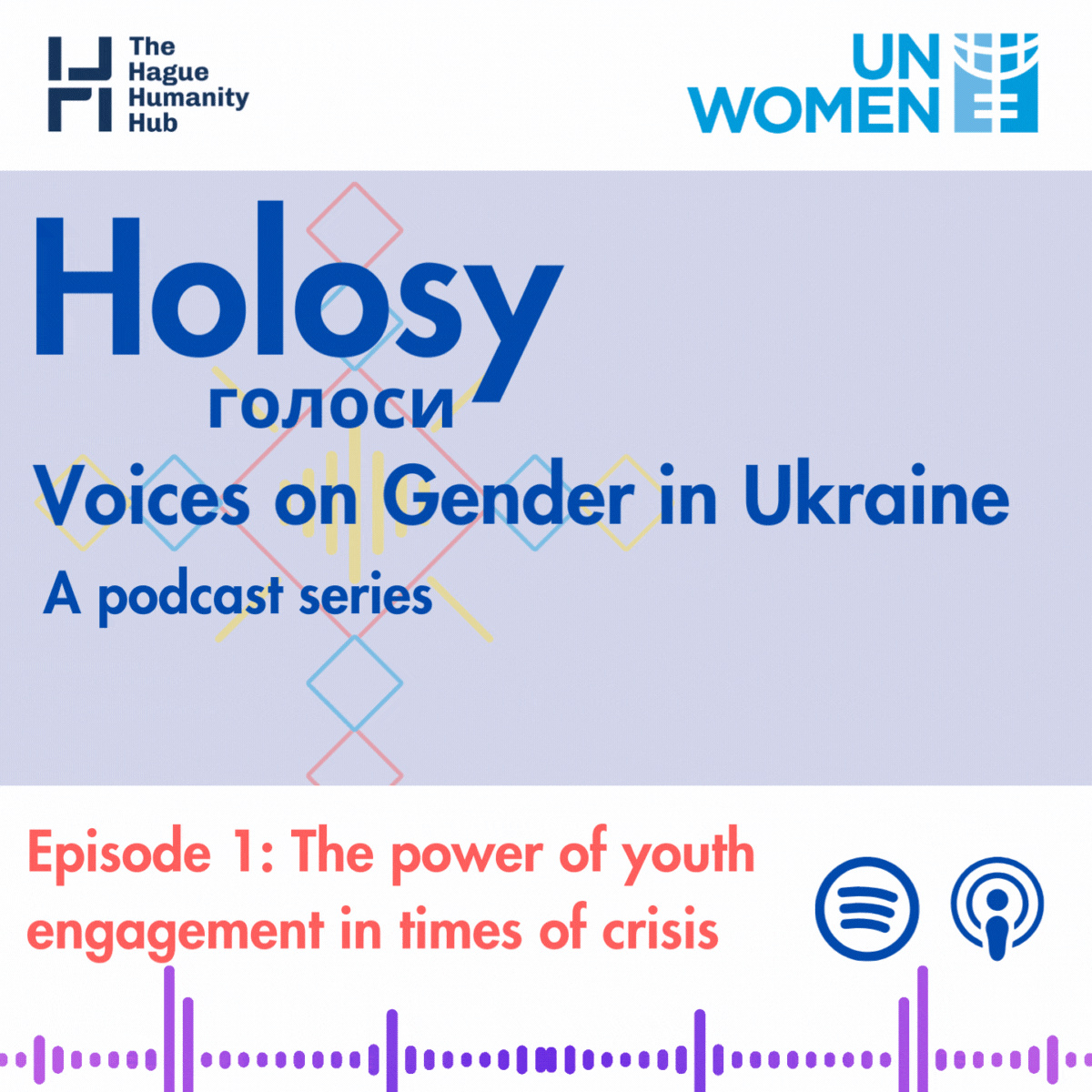
Episode 1: The power of youth engagement in times of crisis
The first episode, featuring guest speakers Valentina Urtan and Steliana Rudco, will explore how young activists have been affected by the Russian invasion, what barriers they have faced to engage in and be represented in humanitarian efforts, and what changes they wish to see to address their unique needs in the humanitarian response.
Guest speakers

Valentina Urtan (28) is a human rights advocate from Ukraine. In a professional capacity she serves as an international civil servant and consultant on gender equality mainstreaming, youth rights, and civil society engagement working with the UN, civil society sector, and government. She started her activism at the time of the Revolution of Dignity in Ukraine, which united people of all generations in Ukraine in the fight for freedom and democracy. After the Revolution, Valentina joined the team of experts who worked on rebuilding the country and implementing needed reforms to rebuild Ukraine. Valentina represented Ukraine as a youth delegate on multiple accounts, and for her activism she was nominated by UN WOMEN to become one of the 300 global youth leaders in the community of National Gender Youth Advocates. Currently, Valentina continues her work and activism in Ukraine volunteering for several local organizations including the female-led and -founded Impact Force NGO which is focussed on social behaviour change, lasting social impact, and creating economic opportunities for people affected by multiple crises in Ukraine. Despite the ongoing war in her country, she continues to represent the voice of young people and women from Ukraine in the international arena and works on building connections between Ukrainians and youth from other countries affected by wars and conflicts around the world.
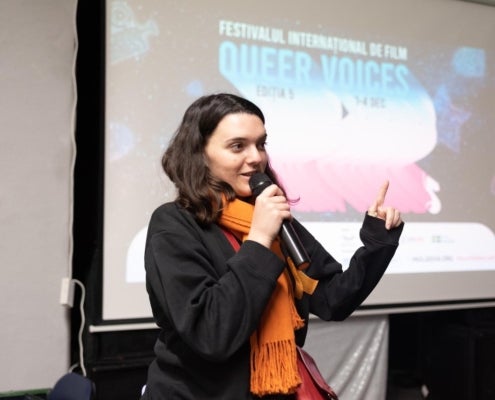
Steliana Rudco (27) is a human rights activist, from Republic of Moldova. Professionally, she is administrating the first Community Center in Republic of Moldova, for women, children and youth from local communities, Ukrainian citizens in temporary displaced in Moldova, and representatives of all minorities in Moldova. Her activism in crisis management started in 2020 with the COVID-19 pandemics. She is the co-founder of the “Against COVID-19 Initiative”, as a volunteer she managed over 500 volunteer into helping vulnerable people all over the country to receive humanitarian help, and build strong communities to support each other during pandemics and after. In 2022, she became the co-founder of the Moldova for Peace Initiative, the first refugee response initiative in Moldova. When the full scale war started in Ukraine, she and other 20 volunteers build the national refugee crisis response strategy for the government and civil society. She is still working in the humanitarian aid and trying to build integration programs and capacity (re)building projects for the local communities and for the marginalized and/or disadvantaged groups. As a member of the LGBTQI+ community, in 2023 together with 4 other organizations she became a co-founder of the first LGBTQI+ platform in Moldova, to protect, promote and advocate for the communities rights and freedoms.
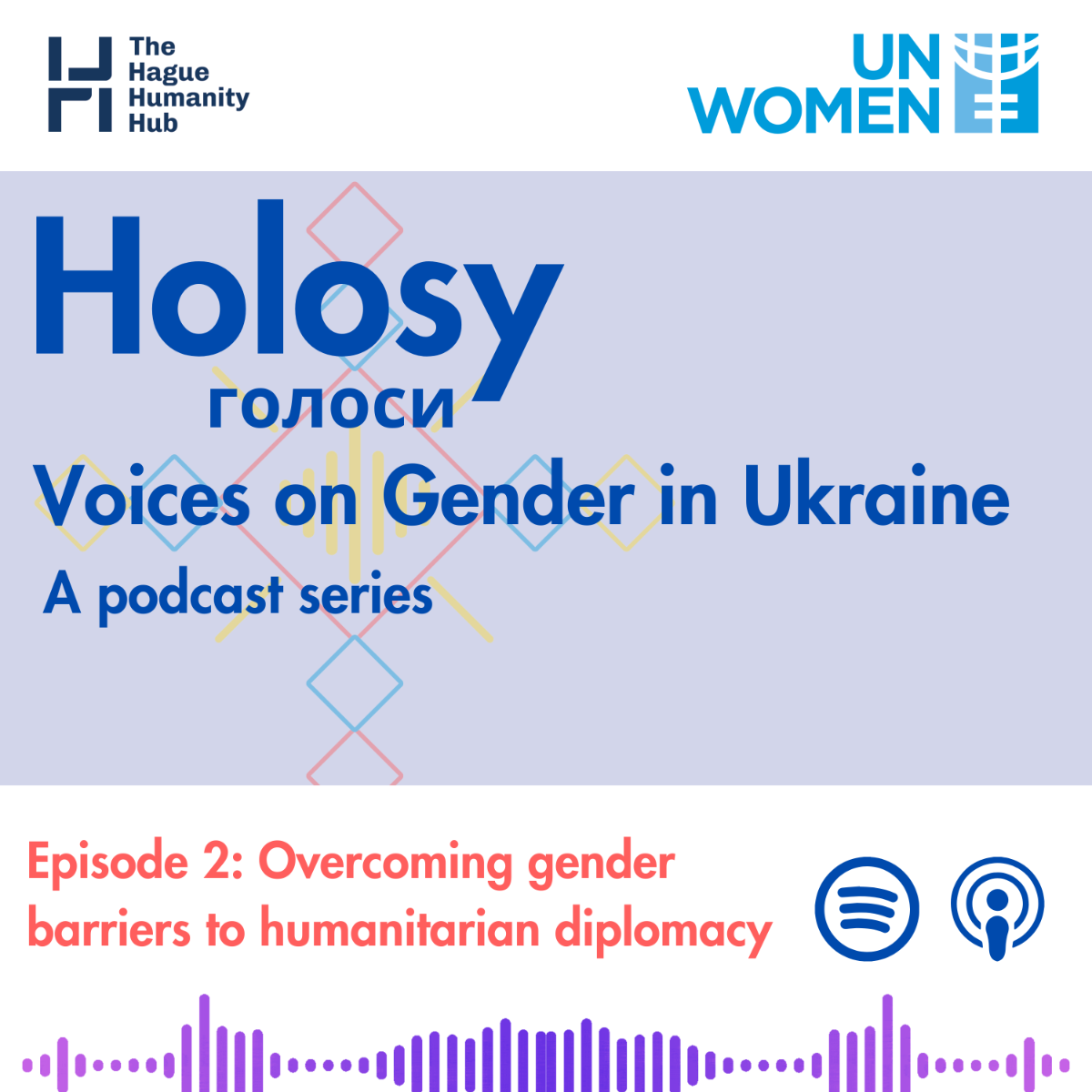
Episode 2: Overcoming gender barriers to humanitarian diplomacy
In the second episode, Kirkach Natalya Aleksandrovna and Dr. Salla Turunen will explore the potential of humanitarian diplomacy in the context of the Ukraine crisis, reflecting on how gender can influence access to humanitarian negotiations and how to build the capacity of women to overcome gender barriers to humanitarian diplomatic efforts.
Guest speakers
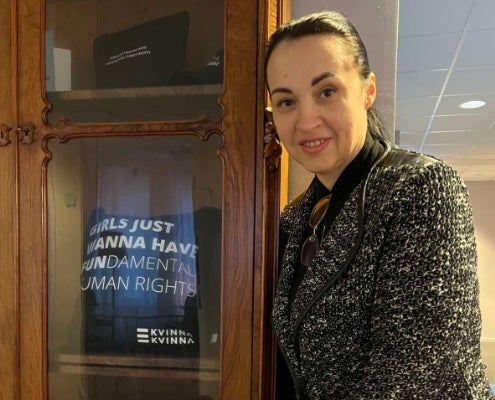
Natalya has been engaged in women related issues including women’s leadership since 1997. She was Deputy of the Svyatogorsk City Council from 2015- 2020 and a Gender Adviser to the head of the Kramatorsk District Administration from May 2021.
On 10 May 2014, following the first occupation of the city of Slavyansk, she was evacuated with her family from Slavyansk to Svyatogorsk, when she started to engage in volunteer initiatives to support IDPs with humanitarian aid and evacuations from conflict-affected zones. In January 2015, she founded the “Slavic Heart Charitable Foundation” which is currently hosted by the Center for Family Assistance and Women’s Protection. As of today, the Slavic Heart Charitable Foundation has provided legal support, information services, psychosocial support, humanitarian aid, trainings, assistance for employment search to more than 220,000 affected women and children.
She received two awards from the Presidents of Ukraine, Petro Poroshenko and Volodymyr Zelensky.
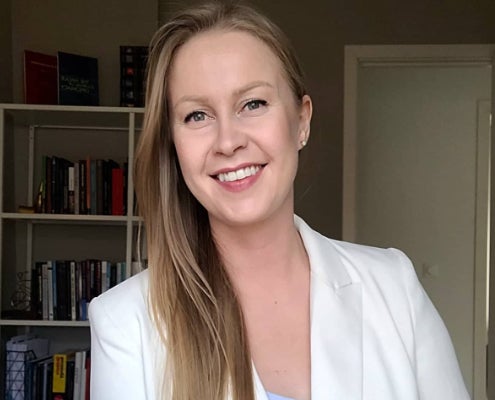
Dr. Salla Turunen is an International Relations expert with combined researcher and practitioner experience. She has worked with UN Women at country, regional, and Headquarter levels, including in conflict and post-conflict settings. She is one of the world’s leading scholars in the area of humanitarian diplomacy with over 30 publications on the issue, and she’s also writing a new book on the topic for policy and practitioner guidance. Currently, Dr. Turunen is the Manager at the Centre for Women, Peace and Security and GCRF Justice and Security Hub at the London School of Economics and Political Science (LSE).
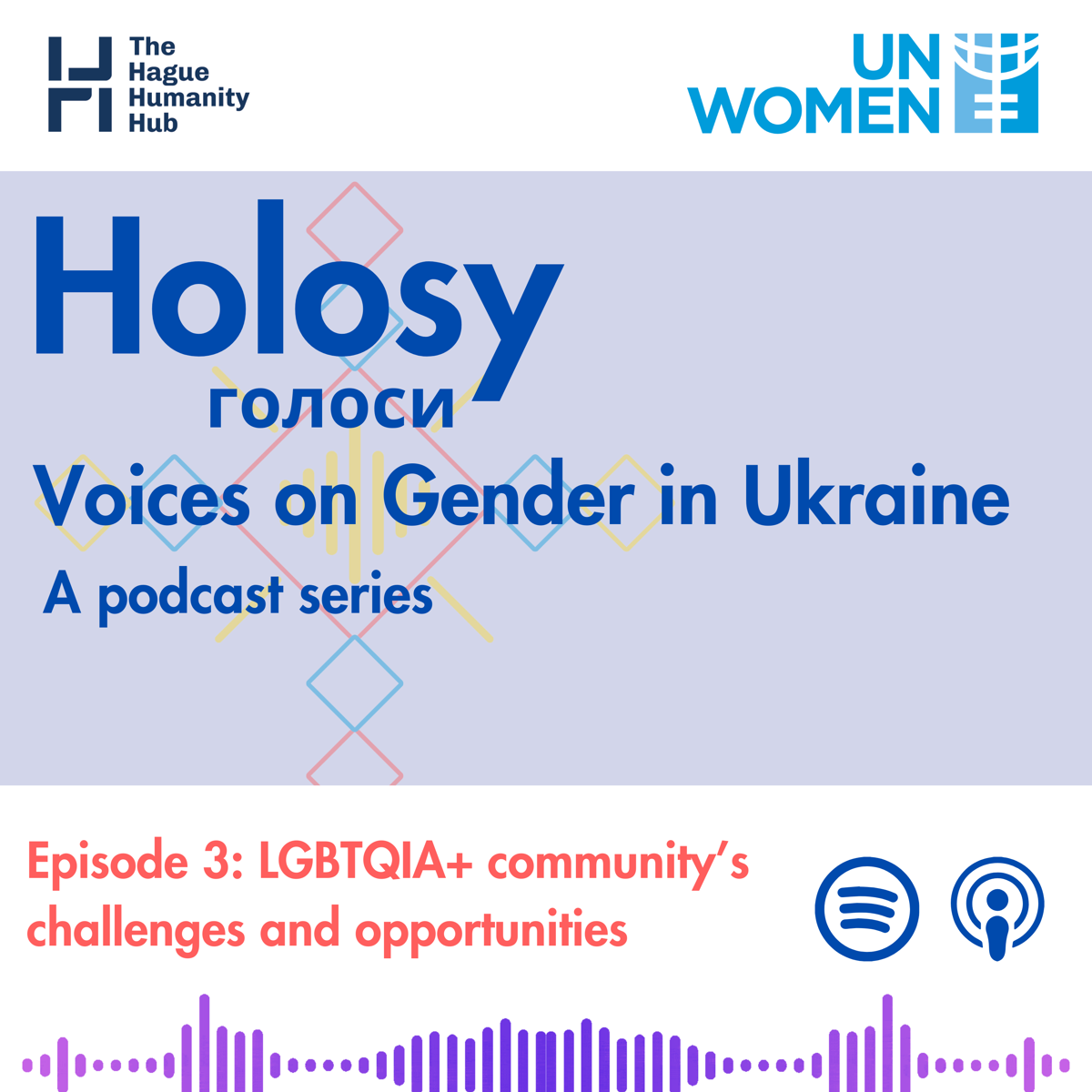
Episode 3: LGBTQIA+ community’s challenges and opportunities
Even prior to the full-scale invasion of Ukraine, LGBTQIA+ communities faced rampant discrimination, and barriers have only increased since it began in February 2022. At the same time, transnational solidarity amongst the LGBTQIA+ community has grown stronger during the crisis. This episode explores what barriers LGBTQIA+ community are facing in and outside of Ukraine, and how the needs of LGBTQIA+ communities should be integrated into the humanitarian response.
Guest speakers
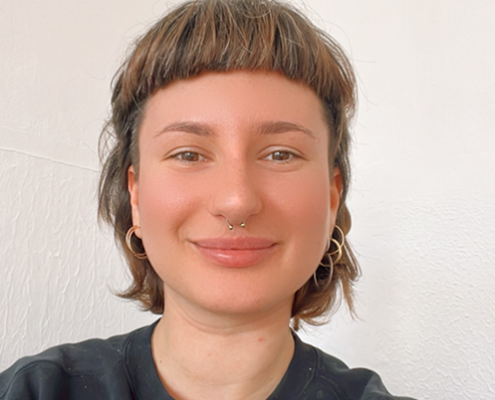
Rina Rybalko is an activist from Ukraine. She believes in human rights and the need for an active position and work of public organizations; as an International Relations and Public Communications student, she participated in projects related to the mainstreaming and protection of human rights in a youth NGO in her hometown Dnipro.
Then, joined Gender Stream and being part of the team has organized powerful projects – such as Tolerance Island – feminist and LGBTQI+ programme on the all-Ukrainian mainstream festival in 2021.
She started constantly working with LGBTQI+ communities by joining the Gender Stream team fully from February 2022. During this time, within the Gender Stream team she has organized the work of two shelters for LGBTQI+ refugees from Ukraine in Slovakia. The first one was opened already in the beginning of March 2022.
She takes a significant part in the development of the Gender Stream organization in Slovakia and established a network of contacts for providing comprehensive assistance to Ukrainian LGBTQI+ refugees in Slovakia. She is engaged in advocacy and speaks about the challenges of the Ukrainian LGBTQI+ communities at the international level to bring long-term and sustainable support and solutions to the affected Ukrainians.
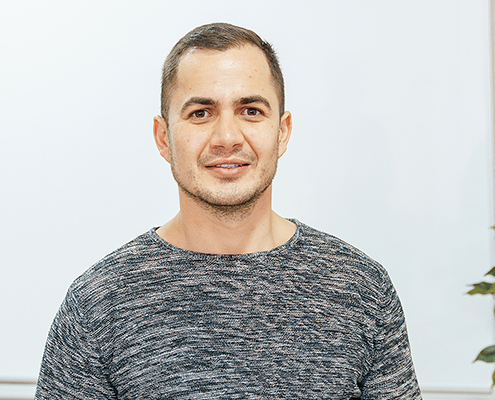
Vitaliy Zaharchuk (he/him) is based in Odesa, Ukraine and serves as the LGBTIQ inclusion advisor for Ukraine for Outright International, ensuring that the LGBTIQ community is inclusively represented in humanitarian response efforts in Ukraine.
In his role at Outright International, Vitaliy actively participates in humanitarian sector meetings and working groups, advocates for LGBTIQ inclusion, facilitates collaboration between humanitarian actors and LGBTIQ civil society organizations, and organizes convenings and data gathering initiatives aimed at documenting the capacities and needs of the LGBTIQ community. He is also involved in identifying strategies for strengthening the humanitarian sector’s response to LGBTIQ needs.
Vitaliy has been involved in humanitarian response projects since 2014 in Kherson region, since 2016 in Donetsk and Luhansk regions. In February 2022, Vitaly and his friends in occupied Kherson, as they did not have time to leave, organized a volunteer initiative to provide comprehensive assistance to people, and tried to cover in social networks what was happening in occupied Kherson. In the summer of 2022 they had to evacuate to Odessa, as it became dangerous to stay in Kherson.
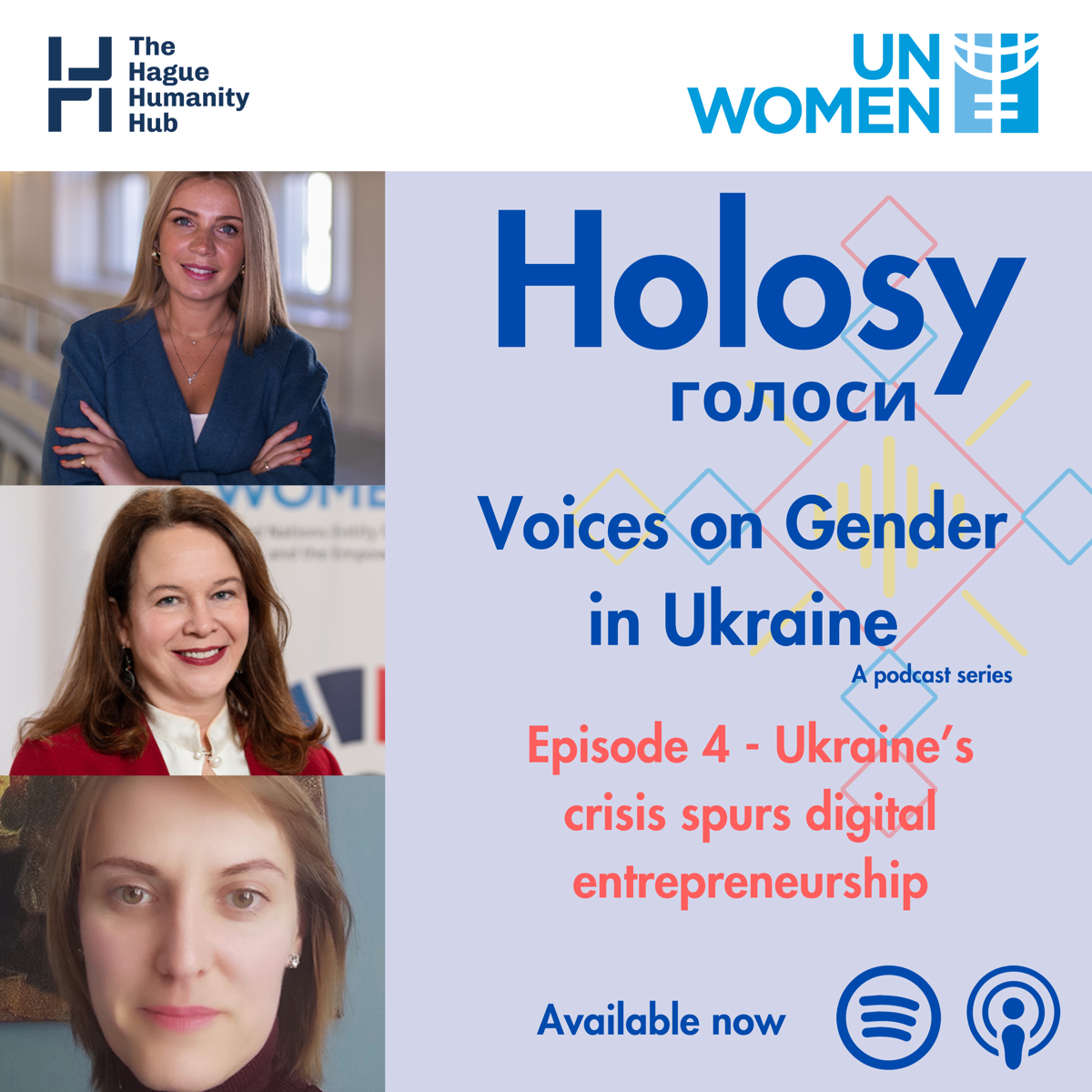
Episode 4: Ukraine's crisis spurs digital entrepreneurship
The ongoing war in Ukraine has had a devastating impact on the lives of women and girls, who make up the majority of those displaced in the country and across Europe. Displacement, coupled with economic and social disruptions, have left many women and girls facing increased safety and protection risks while reducing their access to critical resources and services. In this context, digitalization presents new opportunities for women to overcome these challenges, unlocking new sources of economic growth and opportunity while also promoting greater social and economic resilience in society. While Ukraine has made significant strides in digital transformation in recent years, from offering digital state services to its citizens to improving the infrastructure and supporting entrepreneurs in creating and scaling businesses during the war, challenges remain. This episode explores these challenges from the perspective of women entrepreneurs in and outside of Ukraine.
Guest speakers
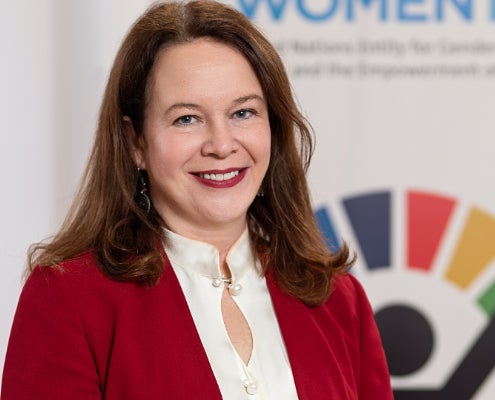
Sabine Freizer Gunes has over 25 years of policy and programming experience in good governance, gender equality, human rights, civil society development and conflict prevention and resolution. Until February 2023, she was the Chief of UN Women’s Leadership and Governance Section, a post she held since August 2019. As Chief, she supervised a team working to ensure women and girls’ participation in decision making and that they benefit from gender responsive governance. Sabine previously spent four years in UN Women’s Regional Office for Europe and Central Asia where she served as a Policy Advisor on Governance, Peace, Security, as well as acting head of office in Turkey and Albania.
Previously, Sabine worked as the acting Eurasia Program Director at the Open Society Foundations (2014-2015). Between 2009 and May 2013, she was the Europe Director at the International Crisis Group, where she started as South Caucasus Director (2004-2009). She began her career with the OSCE Missions in Uzbekistan and Bosnia-Herzegovina.
A national of Belgium and USA, Sabine holds a Ph.D. in Social Policy from London School of Economics and Political Sciences, UK, M.A. in European Politics and Administration from the College of Europe, Belgium and B.A. in Political Science from the Dartmouth College, USA. She is married with two children.

Nina Levchuk is the co-founder of Impact Force, a pioneering Ukrainian women-led non-profit organization that focuses on social behavioural change and fosters economic opportunities. Nina is also the founder of United for Ukraine, an initiative dedicated to addressing Ukraine’s imminent needs for emergency relief as part of IRC Signpost. Nina holds a prominent position as the Startup and Venture Capital Lead at Google Germany and she has been recognized as a Top Innovator by World Economic Forum, highlighting her contributions to solving social challenges.
Her dedication to driving positive change has earned her membership in prestigious organizations such as Schwab Foundation Alliance for Social Entrepreneurship. She is a Globsec Young Leader, BMW Foundation Responsible Leader, Women in Tech Advocate and Angel Investor, utilizing her extensive knowledge and network to support promising startups and fuel innovation.
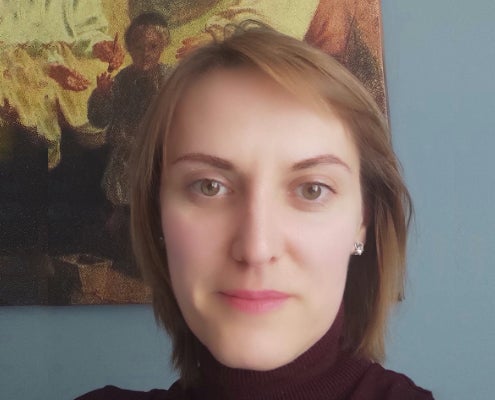
Oksana Hunko is a journalist for the online publication Novakahovka.city in the occupied city of Novo Kahovka in Ukraine. She is the author of the “InfoSluh” project, a community for parents of hearing-impaired children. Being the mother of a boy with hearing impairment and autism spectrum disorder, Oksana wants to package her experience into informational products for families with disabled children. The “Dream and Achieve” project provides her with support, allowing her to see various models and examples of how women who have found themselves in different life situations due to the war are moving forward, rebuilding their lives, and helping others to not lose hope.
